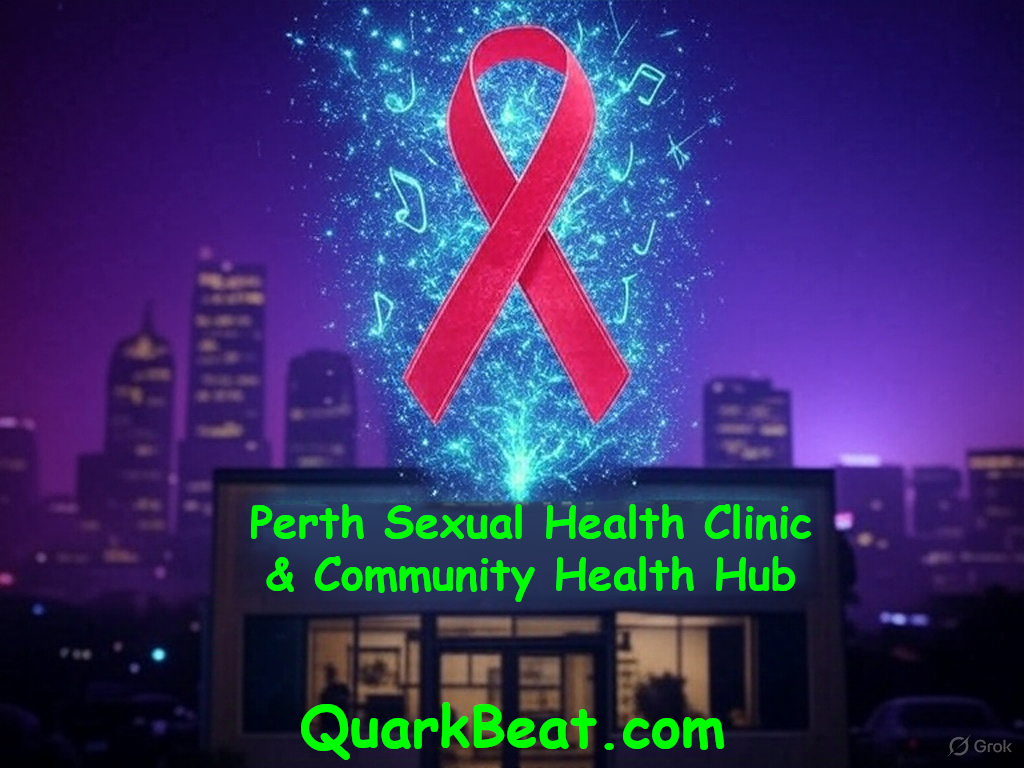Merge BBV & STI for a Better Future: It's time to Build Safe, Modern Organisations for PLHIV & their Families in Western Australia.
Introduction to The HIV Consumer Alliance of WA!
Since their establishment in the 1980s, AIDS Councils have been pivotal in tackling the HIV/AIDS crisis, coordinating local responses, advocating for policy reform, and supporting affected communities. However, the HIV epidemic has transformed significantly, and the outdated, often-unregulated structures of these non-government organisations (NGOs) no longer meet the diverse needs of HIV+ individuals.
Toxic cultures, unsafe service environments, unaddressed stigma, and inadequate responses to critical issues like the meth addiction epidemic, domestic violence and intra-community bullying necessitate a fundamental change. This is why the HIV Consumer Alliance of WA say we need to Merge BBV & STI for a Better Future: It's time to Build Safe, Modern Organisations for People Living with HIV and AIDS and their Families in Western Australia.
Rather than reforming these outdated models, AIDS Councils must be replaced with regulated, patient-centred organisations, such as the proposed Perth Sexual Health Clinic and Community Hub, that prioritise the safety, dignity, and holistic needs of HIV+ individuals, their partners and families. A merged Blood Borne Virus (BBV) and Sexually Transmitted Infection (STI) framework, encapsulated by the catchphrase “Merge BBV & STI for a Better Future: It's time to Build Safe, Modern Organisations for PLHIV & their Families in Western Australia.” offers a pathway to equitable, efficient, and inclusive care.
This framework will provide Western Australia with a State of the Art Teaching and Learning Facility for staff training and development that will provide health care workers with career pathways of excellence for employment throughout the City and Regions.
Why AIDS Councils Must Be Replaced
-
Toxic Cultures and Lack of Oversight
Many AIDS Councils operate as unregulated NGOs, fostering environments where long-term political operatives entrench toxic cultures and undemocratic processes. Without robust oversight, these organisations often prioritise institutional interests over client needs, leading to allegations of bullying, exclusion, and mismanagement. For instance, service design may focus on agency priorities rather than evidence-based outcomes, and the absence of regular rigorous external program evaluations and forensic audits allows defective programs and potential financial mismanagement to persist. Replacement organisations must implement independent oversight boards, annual evaluations, independent outcome focused program evaluations, and transparent financial reporting to eliminate corruption and ensure accountability, aligning resources with the needs of HIV+ individuals. -
Unsafe Service Environments
A significant barrier to care is the co-location of HIV support services with needle exchange programs, which can be deeply distressing for HIV+ individuals, particularly those seeking sobriety after trauma. For example, clients who associate drug use with personal trauma or who prioritise a sober lifestyle report feeling alienated when forced to navigate drug-focused areas to access support. This setup undermines trust and discourages engagement with services. New organisations must provide dedicated, physically separate spaces for HIV+ support, ensuring safe, trauma-sensitive access to care. Moreover, these organisations must operate as drug- and alcohol-free environments, with strict policies to maintain a supportive, sober atmosphere that respects clients’ recovery journeys. -
Failure to Address Stigma and Intra-Community Bullying
AIDS Councils have largely failed to implement effective campaigns to reduce HIV stigma and discrimination, which discourages individuals from seeking help or reporting issues due to fears of status exposure. This is particularly acute within the LGB, HIV, and Trans community, where intra-community bullying—including poz-on-poz bullying—remains a significant, unaddressed issue. Such bullying exacerbates social isolation, mental health challenges, and reluctance to engage with services. For instance, stigma often deters complaints about mistreatment, as individuals fear their HIV status will be exposed. Replacement organisations must prioritise robust stigma-reduction campaigns, foster inclusive environments, and establish confidential reporting channels to address bullying and empower clients to seek support without fear. -
Inadequate Response to Domestic Violence and Sexual Assault
HIV+ individuals face heightened risks of domestic violence and sexual assault, yet many AIDS Councils have failed to conduct prevention campaigns and have covered up these issues to protect the reputation of special interest groups. This encourages non-reporting, perpetuates cycles of abuse, and hinders efforts to end domestic violence, leaving vulnerable clients without adequate support. Replacement organisations must adopt trauma-informed care, offering dedicated services such as counselling, legal aid, and confidential reporting mechanisms. Prevention campaigns tailored to HIV+ communities can further empower survivors and promote a culture of accountability and safety. -
Exclusionary Practices and Lack of Democracy
Decision-making in many AIDS Councils is controlled by entrenched groups, often excluding newly diagnosed individuals and diverse communities, such as straight and bisexual HIV+ individuals. This lack of participatory democracy results in services that fail to reflect the broader HIV+ population’s needs. For example, some councils have been criticised for prioritising special interest groups, such as LGB and Trans community and/or pro drug use agendas, creating environments perceived as unwelcoming or overly focused on social or far left extremist political agendas. New organisations must implement term limits, democratic voting, and inclusive governance models to ensure all HIV+ individuals, particularly marginalised or newly diagnosed groups, and their families, shape service delivery. -
Misaligned Priorities and Resource Diversion
Resources in some AIDS Councils have been diverted from HIV+ support to programs like needle exchanges or initiatives to support political ideologies including programs for HIV negative LGB and Trans people, based on the pushing of misinformation that "all HIV+ individuals are universally well and working and do not need services.” This statement is not only untrue but it also marginalises and discriminates against PLHIV needing medical, emotional, or social support, particularly straight and bisexual individuals who are excluded by the focus on specific political agendas. Replacement organisations must recentre services upon the needs of HIV+ individuals, ensuring equitable access to services that address HIV Positive People first and their unique needs without prioritising unrelated goals. -
Inadequate Support Services
Beyond medical care, in order to thrive and achieve maximum wellbeing, HIV+ individuals, their partners and families, require holistic supports, without politics or access to services being determined by discriminatory participation policies. Current AIDS Councils often fail to provide non discriminatory comprehensive results driven services, such as:-
Mental Health: Accessible counselling without waiting lists, with properly funded services to address depression, anxiety and trauma. ALL staff need to be trained to identify and proactively support PLHIV experiencing intimate partner violence and all people regardless of their sex or gender, deserve to live free from harm.
-
Peer-to-Peer Support Groups: Safe, facilitated groups to prevent social isolation, reduce depression, and subtly support suicide prevention by fostering community and connection. Peer to Peer Support Groups are important mechanisms for recovery from Sexual assault and Domestic violence which are at crisis levels in the HIV Community.
-
Drug and Alcohol Rehabilitation: Referrals to rehab programs need to be prioritised along with support programs to minimise problematic alcohol use and reduce the meth addiction crisis. Programs need to be aligned with the needs of those seeking sobriety. Peer to Peer Support groups are important diversion programs that assist in recovery from addiction.
-
Housing, Employment, and Food Assistance: Tailored programs to stabilise lives and improve health outcomes by addressing social determinants need to be refunded by the AIDS Industry.
-
Replacement organisations, such as the proposed Perth Sexual Health Clinic and Community Hub, must integrate these services, ensuring comprehensive support that empowers HIV+ individuals, including those with disabilities, to lead fulfilling lives.
A New Vision and A New HIV Deal for WA
Replacing AIDS Councils with regulated, patient-centred, audited, outcome focused and ALL Welcome Organisations under a merged BBV/STI framework ensures cost effective, safe, inclusive, and comprehensive care. This framework replaces the existing inadequate voluntary complaint processes with an independent statutory complaints mechanism that serves and protects and the human rights of all clients/patients. Key features include:
-
Patient Safety and Confidentiality: Strict protocols to protect patient records, ensure confidentiality, and safeguard clients from misconduct, bullying & Breaches of Confidentiality with independent oversight.
-
Dedicated HIV+ Spaces: Physically separate, drug- and alcohol-free support areas to create trauma-sensitive environments.
-
Stigma Reduction and Anti-Bullying: Robust campaigns to combat HIV stigma and intra-community bullying, with confidential reporting channels.
-
Trauma-Informed Care: Comprehensive services for domestic violence and sexual assault survivors, including prevention campaigns, counselling, and legal aid.
-
Holistic Support: Mental health counselling, peer-to-peer support groups, drug rehab referrals, and programs for housing, employment, and food assistance.
-
Democratic Governance: Term limits, democratic voting, and inclusive representation to empower diverse HIV+ voices.
-
Streamlined Efficiency: Merging BBV and STI services to eliminate duplication, reduce costs, and enhance care delivery.
-
Accountability: Regular forensic audits, program evaluations, and independent oversight to ensure resources benefit clients.
Conclusion
AIDS Councils were vital in the 1980s, but their unregulated, outdated structures fail to serve today’s HIV+ communities. Toxic cultures, unsafe environments, unaddressed stigma, and inadequate responses to issues like domestic violence and bullying necessitate their replacement with modern, regulated organisations.
A merged BBV/STI framework, guided by the vision of “Merge BBV & STI for a Better Future,” can deliver equitable, trauma-informed care.
It’s time for governments, policymakers, and advocates to make this vision a reality, ensuring all HIV+ individuals, their partners and families, receive the support they deserve.
Please Like and Follow the HIV Consumer Alliance of WA on Facebook and Youtube.
This article was crafted with the assistance of Grok x AI. Truth is, Grok did some heavy lifting of a first draft provided by James and editing of the final draft was with the assistance of Members from the HIV Consumer Alliance of WA. Want to tap into Grok’s brainpower? Become a Premium Member at X.com!




